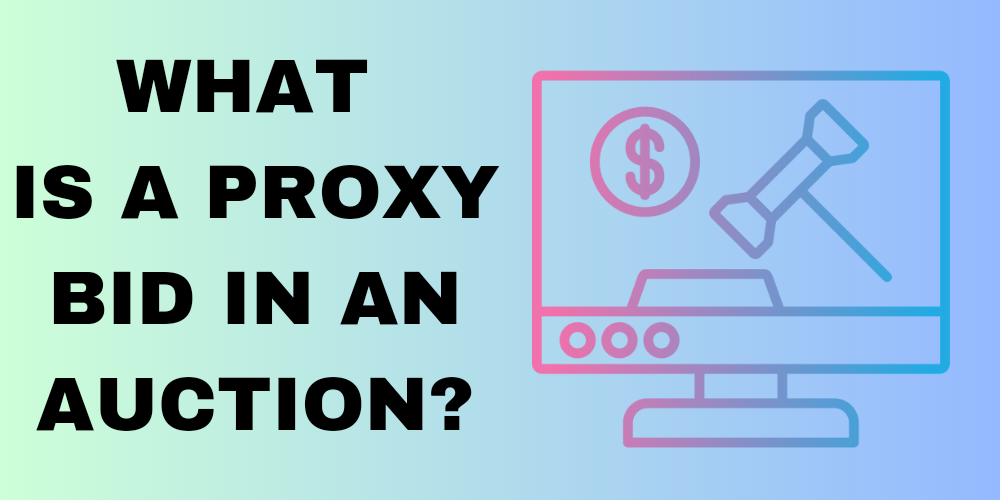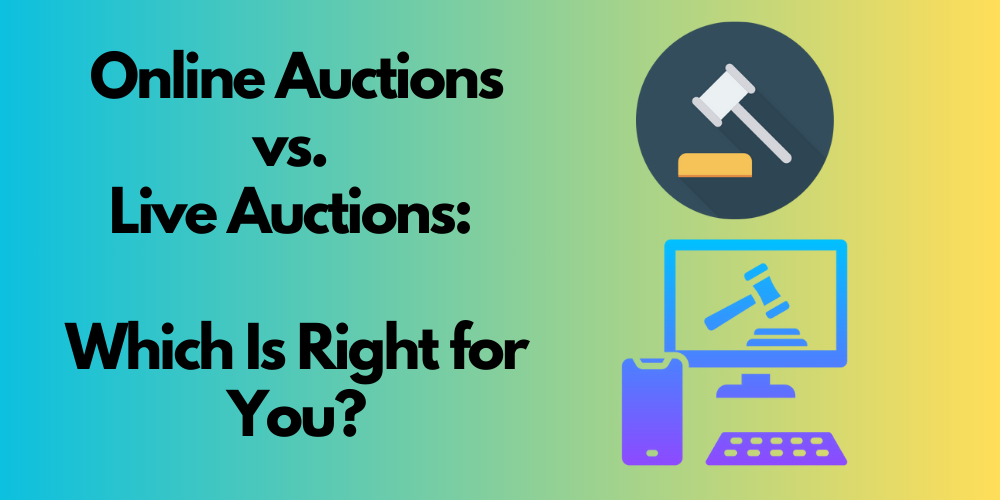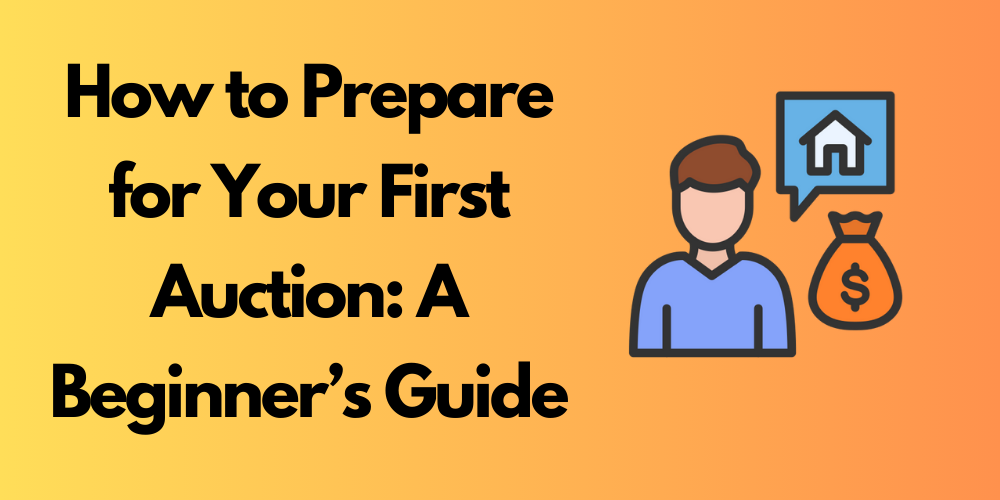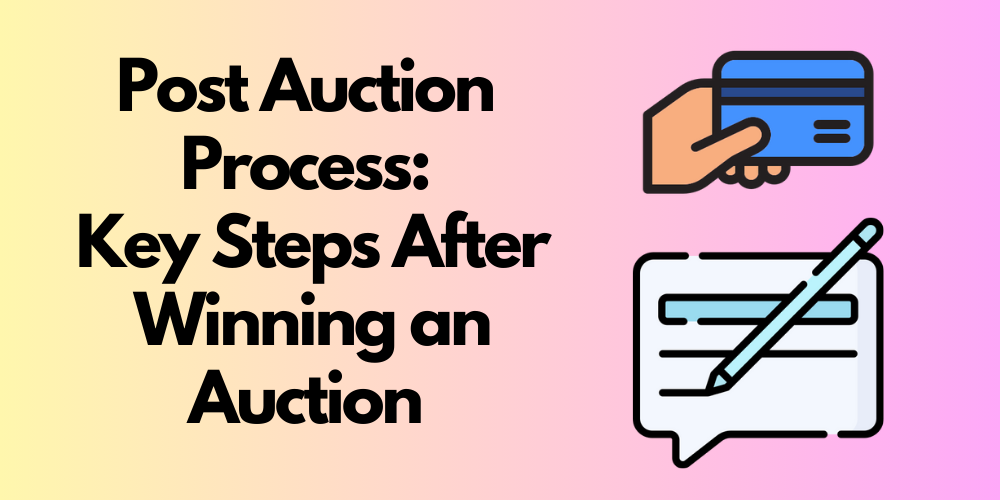Table of Contents Overview Ultimate Auction Pro Auctions Made Easy for WooCommerce Auctions for WooCommerce…
Proxy Bids in Auctions: Your Ultimate Winning Strategy

Table of Contents
- What is Proxy Bidding?
- How Does Proxy Bidding Work?
- Advantages of Proxy Bidding
- Disadvantages of Proxy Bidding
- When Should You Use Proxy Bidding?
- Examples 1 of Proxy Bidding in Action
- Examples 2 of Proxy Bidding in Action
- Proxy Bidding Ensures Fairness in Auctions
- Common Mistakes to Avoid
- Conclusion
- FAQ
Overview
Auctions are a popular way to buy and sell items—from rare collectibles to real estate. While traditional bidding involves placing each bid manually, proxy bidding offers a smarter, more hands-off strategy.
In this guide, you’ll learn how proxy bids work, when to use them, and how to win auctions using this powerful feature.
What is Proxy Bidding?
Proxy bidding is a feature that allows you to enter the maximum amount you’re willing to pay for an auction item. The auction system will then automatically place incremental bids on your behalf—just enough to keep you in the lead until your limit is reached.
This means you don’t need to watch the auction 24/7. The system does the work for you.
How Does Proxy Bidding Work?
Here’s a step-by-step breakdown of the proxy bid auction process:
Here’s how the process goes:
- Set Your Maximum Bid: Decide the highest amount you’re willing to pay.
- Let the System Bid for You: The auction software places bids incrementally to keep you ahead—without exceeding your limit.
- Win or Walk Away: If no one else bids above your maximum, you win. If someone outbids you, you can either raise your max or move on.
Advantages of Proxy Bidding
- Convenient: No need to stay online during the entire auction.
- Avoids Bidding Wars: Bidding is automatic and smart.
- Fair and Consistent: Removes emotional or rushed decisions.
- Boosts Engagement: Makes it easier for more people to participate.
- Ensures Fair Play: Reduces last-second “sniping” by placing real-time incremental bids.
Disadvantages of Proxy Bidding
- Overbidding Risk: If your max bid is too high, you could overpay.
- Lack of Control: You can’t respond to how others are bidding in real-time.
- Technical Issues: Rare glitches could interfere with your bidding.
When Should You Use Proxy Bidding?
Proxy bidding is ideal if:
- You’re busy and can’t monitor the auction live.
- You want to avoid emotional bidding.
- The item is high-demand, and competition is tough.
- You have a clear budget and want to stick to it.
Examples 1 of Proxy Bidding in Action
Imagine you’re interested in a rare collectible item. Here’s how the proxy bidding process works:
Let’s say you’re bidding on a rare watch.
- You set a maximum bid of $500.
- The current bid is $300, and others place bids like $310, $320, $350.
- The system automatically increases your bid up to $500 as needed.
- If another bidder places a bid of $600, you’re outbid.
- You can then decide to increase your max or not.
Examples 2 of Proxy Bidding in Action
Meet Alice and Bob, both bidding on a collectible.
- Alice finds an item starting at $100.
- She sets her proxy bid to $300.
- The system enters her at $100.
- Bob bids $150.
- Alice’s proxy automatically raises her bid to $160.
- If Bob doesn’t go over $300, Alice wins the auction.
Proxy Bidding Ensures Fairness in Auctions
- Levels the Playing Field
You don’t need to be present—just set your maximum bid and let the system handle the rest. - Reduces Last-Minute Bidding (Sniping)
Proxy bidding prevents last-second bids, ensuring a fairer and more predictable auction outcome. - Promotes Transparency
The bidding process is open and visible to all, allowing participants to track how bids increase over time. - Offers Equal Opportunity
Every bidder, regardless of time zone or schedule, has a fair chance to win. - Reduces Emotional Bidding
Setting a max bid in advance helps avoid impulsive, emotionally driven decisions during the heat of the auction.
Common Mistakes to Avoid
- Setting Unrealistic Bids: Know your item’s value.
- Ignoring Auction Rules: Always read the terms and conditions.
- Forgetting to Double-Check Your Bid: Confirm your bid amount before submitting.
Conclusion
Proxy bidding is a powerful strategy for both new and seasoned auction participants. It simplifies the process, saves time, and increases your chance of success—without needing to hover over the bidding screen.
By understanding how it works and applying it wisely, you can master your next auction with confidence.
FAQ
What is proxy bidding?
Proxy bidding is a method where you set a maximum bid in advance, and the auction system automatically places bids on your behalf. This allows you to participate without needing to be present at the auction.
How does proxy bidding ensure fairness?
Proxy bidding levels the playing field by minimizing the advantages of bidders who can react quickly in live settings. It reduces last-minute sniping, promotes transparency, and allows all participants an equal opportunity to bid.
When should I use proxy bidding?
Proxy bidding is ideal when you want to avoid the stress of live auctions or when bidding on high-demand items where competition is fierce. It’s perfect for busy individuals who may not be able to monitor the auction continuously.
Can I set my own bid increments?
Most auction platforms set specific increments for bids, which are typically predetermined. However, your maximum proxy bid allows the system to handle the increments automatically within the rules of the auction.
What happens if I’m outbid?
If another bidder surpasses your maximum proxy bid, you will be notified. You can then decide to place a higher bid if you still want the item, or you can walk away.
How do I choose a maximum bid?
Set a maximum bid based on your research of the item’s market value. Consider what you are genuinely willing to pay and factor in any associated fees.
Can I change my proxy bid once it’s set?
Many auction platforms allow you to adjust your maximum proxy bid before the auction ends. However, once the bidding has started and you are the highest bidder, you may not be able to lower your bid.
What should I avoid when using proxy bidding?
Avoid setting unrealistic limits based on emotions or impulse. Also, make sure to read the auction terms and understand any fees involved to avoid surprises later.
How can I maximize my chances of winning with proxy bidding?
To maximize your chances, research the item thoroughly, set a reasonable maximum bid, and monitor similar auctions to understand bidding trends. This strategy will help you make informed decisions.







This Post Has 0 Comments